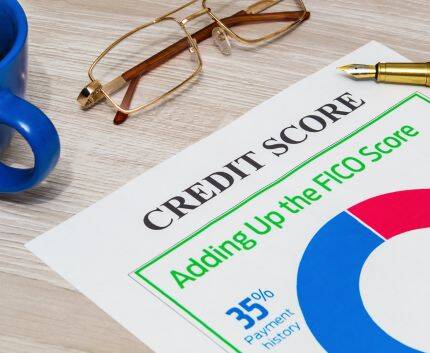
When you’re considering buying a home, your credit score is one of the most important factors in the process. Think of it as your financial report card—a snapshot of how well you manage debt—that lenders use to assess your eligibility and offer the best possible loan options.
As The Mortgage Reports explains: “Good credit scores show lenders that you have a history of responsibly managing your debts. The higher your score, the better your chances of qualifying for a mortgage.” However, many buyers misunderstand the credit requirements for purchasing a home.
A study by Fannie Mae found that only 32% of consumers accurately understand what lenders require, leaving nearly two-thirds of buyers uncertain about whether their credit qualifies them.
What Credit Score Do You Need to Buy a Home?
The minimum credit score you need varies based on the type of loan and lender. According to Experian: “The minimum credit score needed to buy a house can range from 500 to 700, depending on the type of mortgage loan and your lender. Most lenders require a minimum score of 620 for a conventional mortgage.”
Here’s a general breakdown:
- FHA Loans: Often cater to first-time buyers and those with lower credit scores. The minimum score can be as low as 500 if you have a higher down payment (10%) or 580 for lower down payments (3.5%).
- Conventional Loans: Typically require a credit score of at least 620.
- VA Loans: Available to eligible veterans, active-duty service members, and their families, usually with no minimum credit score set by the VA, though lenders may require a score of 580 or higher.
- USDA Loans: Geared toward rural homebuyers and often require a score of 640 or higher.
Even if your credit score isn’t perfect, options are available. Lenders consider multiple factors when evaluating your application, such as income, employment history, and the size of your down payment.
As FICO notes: “There is no universal cutoff score, and lenders consider many additional factors.”
Steps to Improve Your Credit Score Before Buying a Home
If your credit score needs improvement, don’t worry—there are actionable steps you can take to boost it over time:
- Pay Your Bills on Time: Consistently paying your bills, whether for credit cards, utilities, or loans, is one of the most impactful ways to improve your score. Late or missed payments can significantly lower your credit score, so set reminders or automate payments to stay on track.
- Reduce Outstanding Debt: Lowering your debt improves your credit utilization ratio—the percentage of your available credit you’re using. Experts recommend keeping this ratio under 30%. Paying down debt shows lenders you’re responsible and less risky.
- Avoid Opening Too Many New Accounts: While it might seem like a good idea to establish more credit, applying for multiple accounts within a short timeframe can lead to hard inquiries on your credit report. These can temporarily lower your score and make you appear financially stretched.
- Check Your Credit Report for Errors: Errors on your credit report can drag down your score. Regularly check your credit report for inaccuracies, and if you find any, dispute them with the credit bureau.
- Keep Older Accounts Open: The length of your credit history affects your score, so keep older accounts open, even if you no longer use them frequently.
Bottom Line
Your credit score plays a significant role in determining your home-buying options, but even if it’s not perfect, there are still paths to homeownership. By understanding your score and taking steps to improve it, you’ll be better prepared to secure a mortgage and buy the home you want. Ready to take the next step? Call Me!
